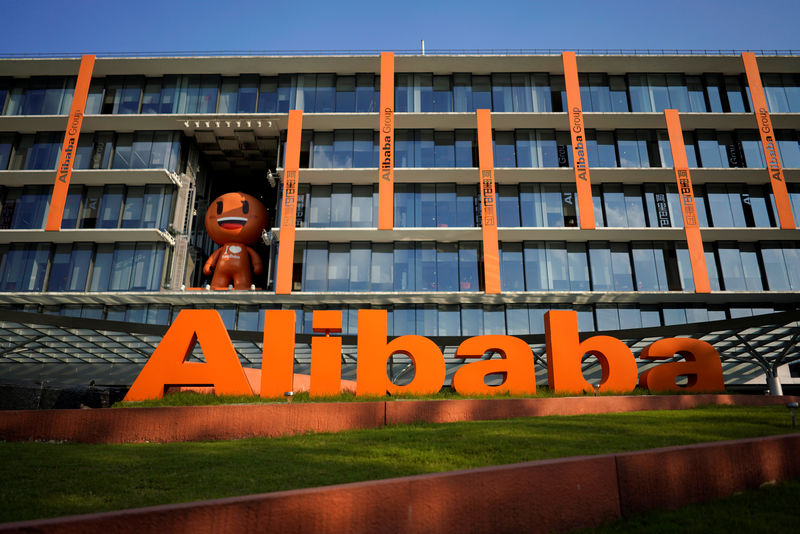SoFi stock falls after announcing $1.5B public offering of common stock
Investing.com -- Artificial intelligence is beginning to reshape the business models of China’s largest internet companies, with Alibaba and Tencent using the technology to strengthen cloud services, advertising, and gaming.
Alibaba Cloud, once criticized as a low-margin business reliant on heavy customization and facing tough state-owned competition, is seeing renewed momentum through AI.
Alicloud revenue is expected to grow more than 30% annually, driven by demand for its Qwen family of models. Incremental cash margins on AI-related revenue have been stronger than those from legacy infrastructure, analysts at Bernstein said.
Alibaba has also developed in-house chips to reduce reliance on foreign suppliers. While its new PPU chip still lags Nvidia’s H20 in some specifications, it has shown “performance levels “close to” the H20,” the brokerage said.
The capital outlay remains heavy. Alibaba is spending about RMB120 billion annually on AI-related investments, with an estimated RMB5 billion to RMB10 billion in incremental EBITDA in return.
Analysts said debates about return on investment are not unique to China, but argued that AI is still early in its adoption cycle, with potential for monetization across Alibaba’s ecosystem, such as in its Amap navigation unit.
Tencent is also expanding its use of AI across advertising and video gaming. Management has described a “long and lengthening runway” for ads growth, helped by AI improvements in ad targeting and data inference.
The company said GPU-based computing has expanded the number of variables WeChat can process for user preference prediction “several-fold,” enabling more precise ad placements.
Tencent’s Video Accounts has reached RMB8 billion to RMB9 billion in quarterly revenue on the back of roughly 600 million daily active users, 60 minutes of daily engagement, and a 4% ad load.
Analysts said ad load could eventually rise into the low teens, closer to rivals like Douyin and Kuaishou.
In gaming, Tencent has applied AI to “optimise matching experience, improve game balance, and facilitate AI coaching for new players,” as well as to enhance 3D content production.
The company has open-sourced several models that generate 3D environments and characters, which analysts said can reduce development costs and sustain player engagement.
Shares of both companies rallied after second-quarter results as investors revalued their ability to drive business growth with AI.
Tencent has been described as “one of the most forward-thinking in the industry when it comes to applying AI to content development and gameplay,” while Alibaba’s Qwen suite ranks “amongst the world’s most competitive” open-source model families, according to Bernstein.
China’s internet sector, with more than 1 billion users and entrenched online habits, gives both firms a large testing ground.
WeChat has 1.1 billion monthly active users, while Taobao and Douyin count 990 million and 930 million, respectively.
“The strategic need to work out what AI can do (and existential risk for enterprises that don’t/can’t) means revenue generation and survival now represent the drivers of adoption rather than cost savings alone,” the brokerage said.
